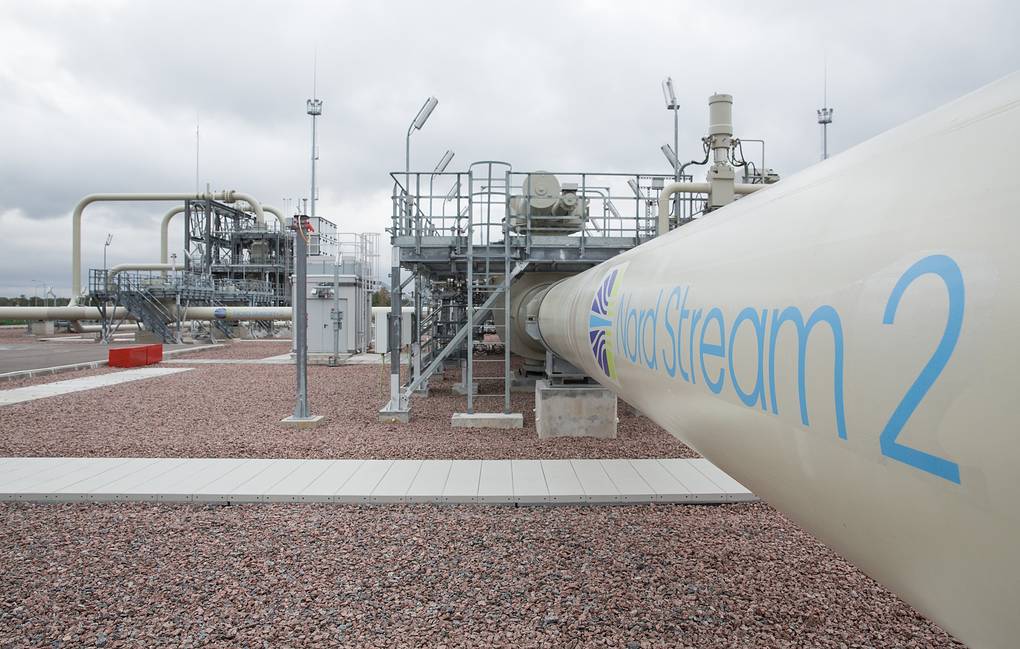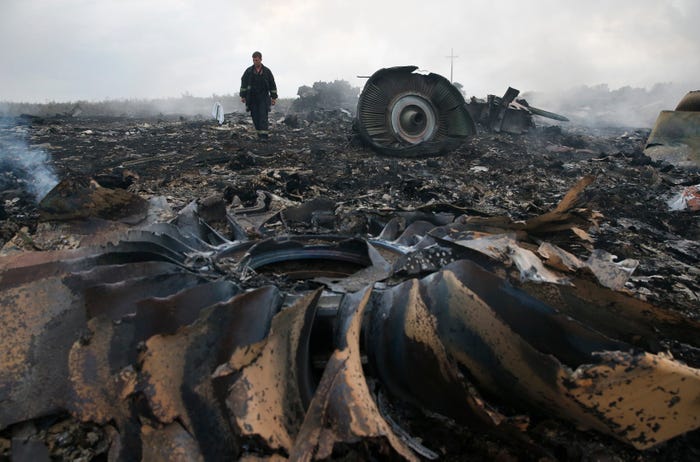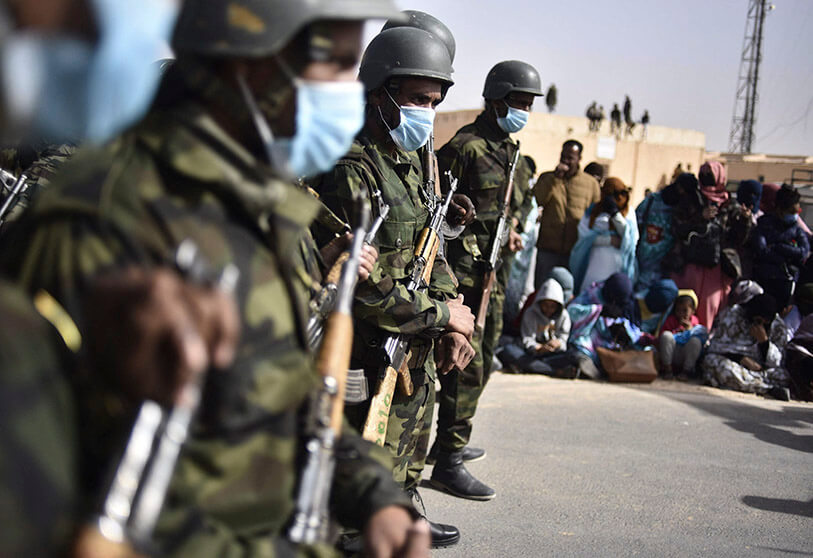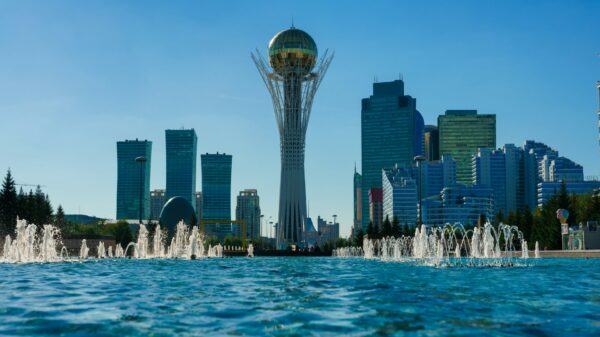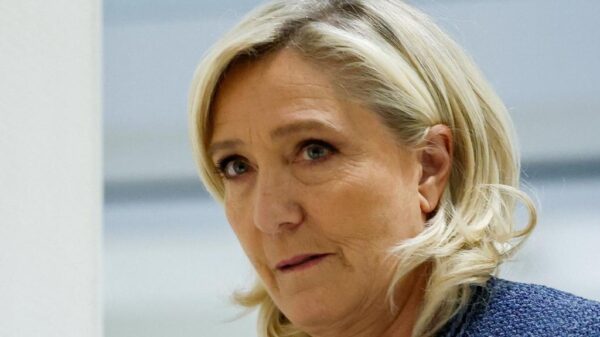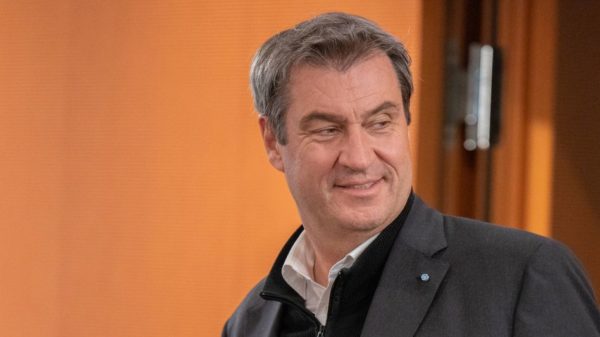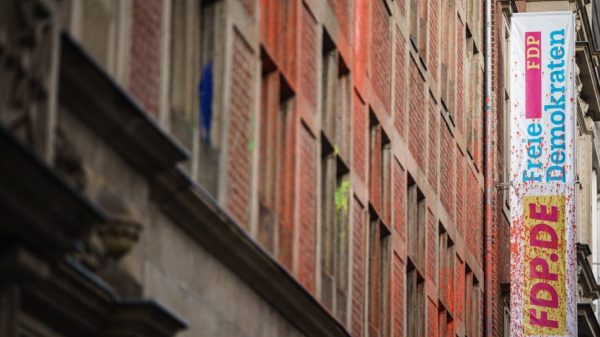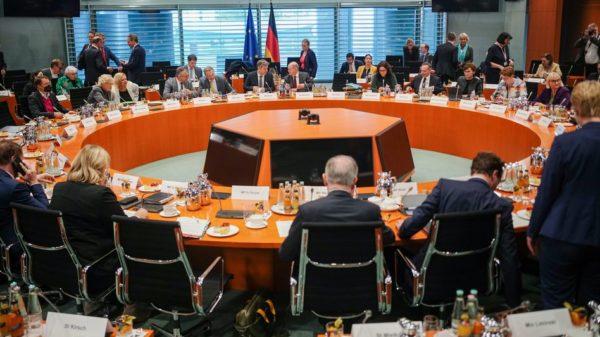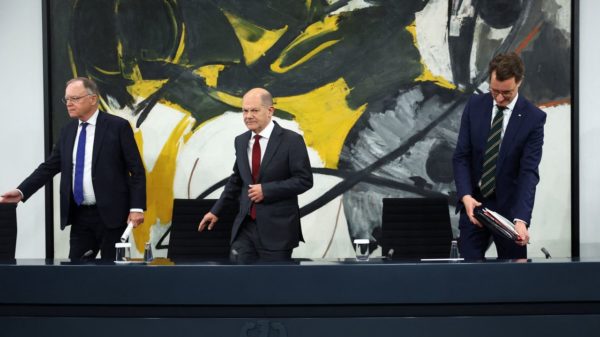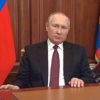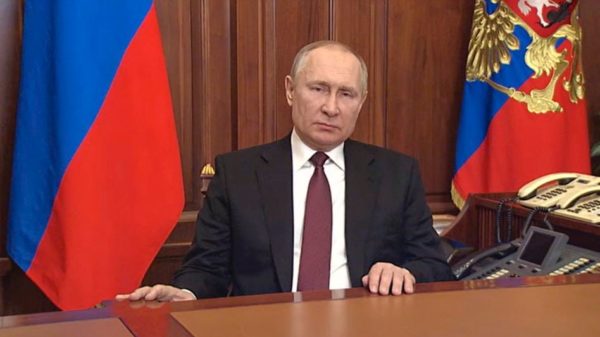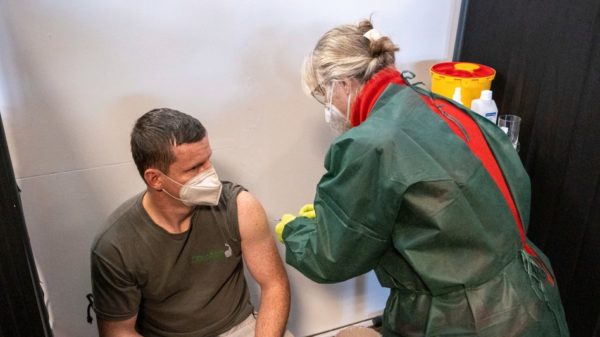A Ukrainian fighter stands next to the remains of a burned-out military vehicle in Bucha, close to the capital city of Kyiv.
Foto: Serhii Nuzhnenko / AP
DER SPIEGEL: Mr. Borrell, Russian President Vladimir Putin has indirectly threatened countries that interfere in the Ukraine war with the use of nuclear weapons. Meanwhile, the European Union is financing arms deliveries from its member states with almost a half a billion euros. Do you sometimes fear that things could go badly wrong?
Borrell: You can’t make an omelet without breaking eggs. And no one will provide a guarantee that nothing will happen.
DER SPIEGEL: So, you and the EU member states in question think Putin’s threat is a bluff?
AdvertisementBorrell: We continue to think that this nuclear threat is completely irresponsible. We do not even want to think about the possibility of nuclear war.
DER SPIEGEL: That Russia would launch a brutal major attack on Ukraine, that the EU would impose devastating sanctions of the Russian economy, and even that Putin would be personally punished, also seemed unthinkable even just days ago. What makes you so sure that Putin will remain predictable under such pressure?
Borrell: I can’t see inside Putin’s head. But we have to do what we have to do. It is completely unacceptable to watch the Ukrainians running out of ammunition. It was clear to us and to the Ukrainians from the very beginning that no soldier from the EU would fight in this war. European societies are not ready for that, and the EU treaties don’t allow it either. But they do allow us to help Ukraine defend itself.
DER SPIEGEL: The EU is supplying a neighboring country at war with weapons. It is allowing thousands of refugees to enter without major formalities. It is jointly imposing economic sanctions that will also hit its member countries themselves. And all that is taking place at lightning speed and without any major bickering. Is the war the external shock the EU needed to move forward on the road to becoming a global player?
Borrell: It is certainly a shock, like the coronavirus. But unlike the pandemic, the war against Ukraine did not come as a complete surprise. For years, it has been said that only a united EU is capable of holding its own on the world stage, ensuring its security and standing up to the growing number of autocrats. Instead, however, the EU has continued to cut back on its defense spending. Even events such as the terrorist attacks of Sept. 11, 2001, did not change this. Europe has abdicated its responsibilities militarily. After the Cold War, we cashed in on the peace dividend that also enabled us to achieve European integration and, in a sense, put it into our social security rather than our physical security.
DER SPIEGEL: That appears to be changing right now. Germany, for example, wants to spend a one-off 100 billion euros on defense and could even this year meet the goal agreed to in 2014 to spend 2 percent of its gross domestic product on the defense budget, a move German politicians had said was impossible for years.
Related Article
Borrell: It would be naive to believe the EU could meet future challenges without strengthening its capabilities. Sure it was comfortable to live under the American defense shield. But it also made us dependent. In Europe, many believed that this kind of peace could last forever. That is probably over now. The U.S. is right to demand that we take on more responsibility in terms of defense policy.
DER SPIEGEL: Is it realistic that the EU could credibly confront a military power like Russia in the foreseeable future, even with all the new investments?
Borrell: It’s not a matter of member countries blindly spending money now. First of all, we have to spend it better. That means no duplication in spending and no holes. Together, the EU states spend four times more on their militaries than Russia. But that doesn’t mean that their forces are four times stronger – because we’re not efficient. That has to change.
DER SPIEGEL: The EU sanctions could also bring Russia and China closer together. How dangerous would that be for Europe?
Borrell: China and Russia are an unequal pair. China is an economic giant. Russia is a country that finances its large military with its gas and oil exports, but it is an economic dwarf compared to China. Dependency on China would hardly be in Russia’s interest either.
DER SPIEGEL: A lot of money that is used to finance Russia’s war machine comes from the Europeans, who continue to buy oil and gas from Russia, even as the bombs fall in Ukraine. Will the EU have to stop imports completely if the war escalates further?
Borrell: I hope not. 40 percent of our gas imports come from Russia. You can’t just replace them overnight.
DER SPIEGEL: But doesn’t that weaken the EU’s sanctions regime?
Borrell: Our sanctions are very effective. And I’m not just thinking about the exclusion of individual banks from the SWIFT system. By far the toughest sanction for Russia is that we have frozen almost half of the central bank’s reserves. Since the annexation of Crimea, Moscow has systematically tried to protect its currency reserves from Western sanctions. In 2014, 85 percent of the Russian central banks reserves were invested in euros or dollars. Today, that figure is around 40 percent. But even freezing that has an enormous effect. Just look at the value of the ruble: It has lost a huge amount of its value!
DER SPIEGEL: The goal of sanctions is usually to bring one’s adversary back to the negotiating table – not to destroy them. In the end, will the EU have to offer Putin a face-saving way out, even after a war of aggression, with potentially many thousands of deaths?
Borrell: The sanctions are necessary for now, and the Russians can’t complain. They were warned what would happen if they invaded. Nevertheless, sanctions alone are not a policy. In the end, we need a solution, and this can only be achieved diplomatically.
DER SPIEGEL: What might a solution look like?
Borrell: It is too early to tell. Only one thing is certain: We cannot and will not sacrifice Ukraine.


